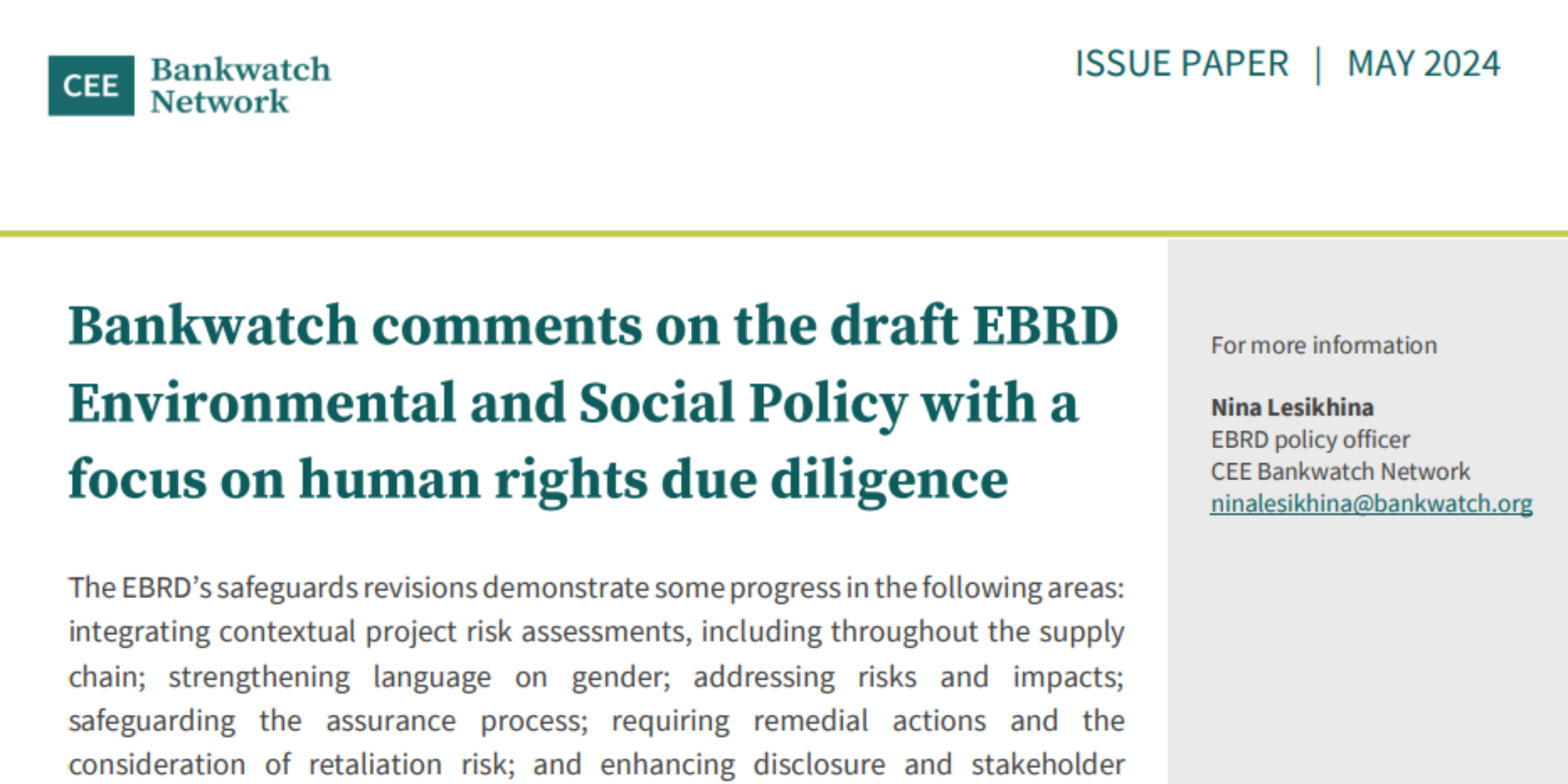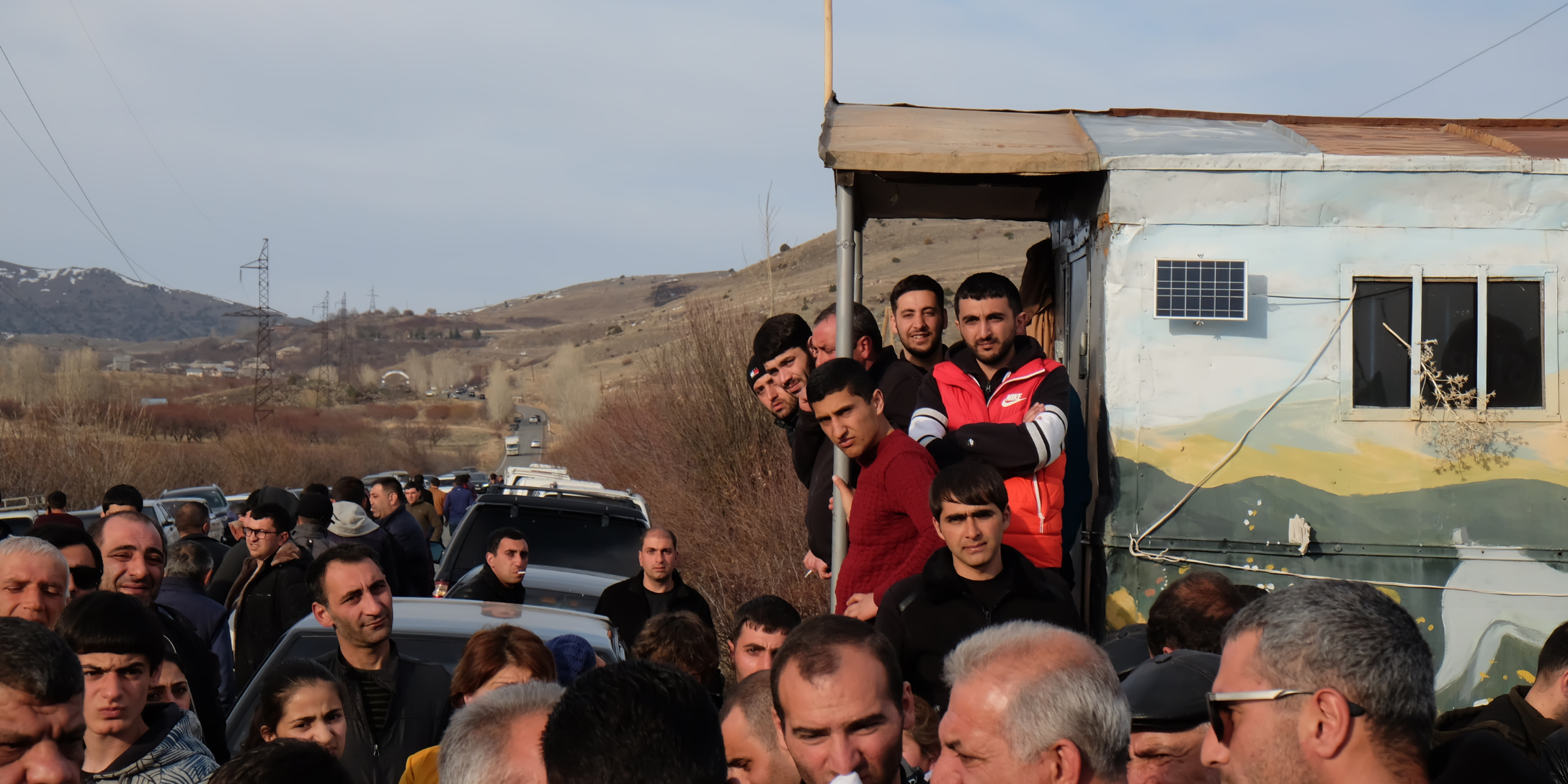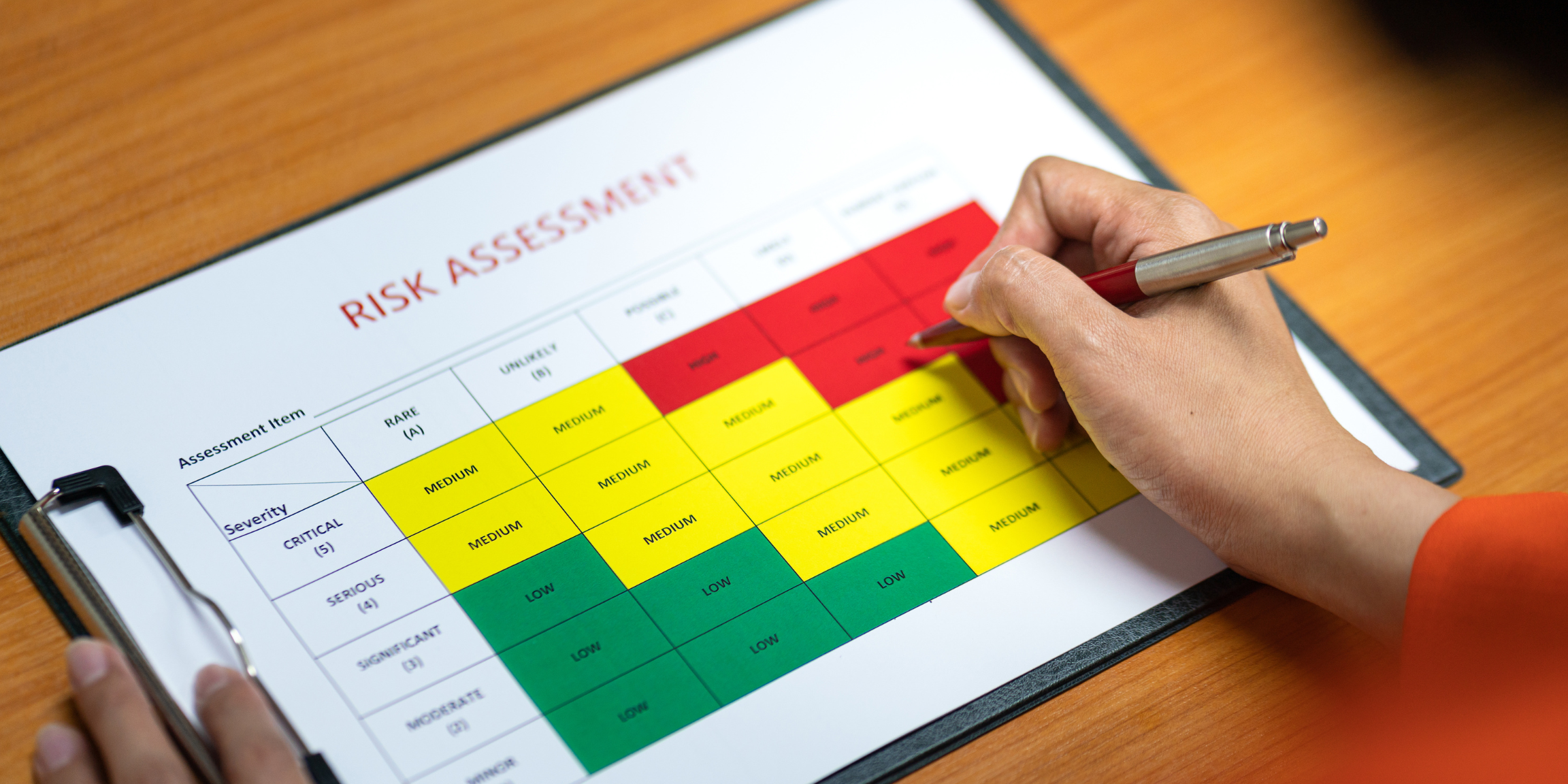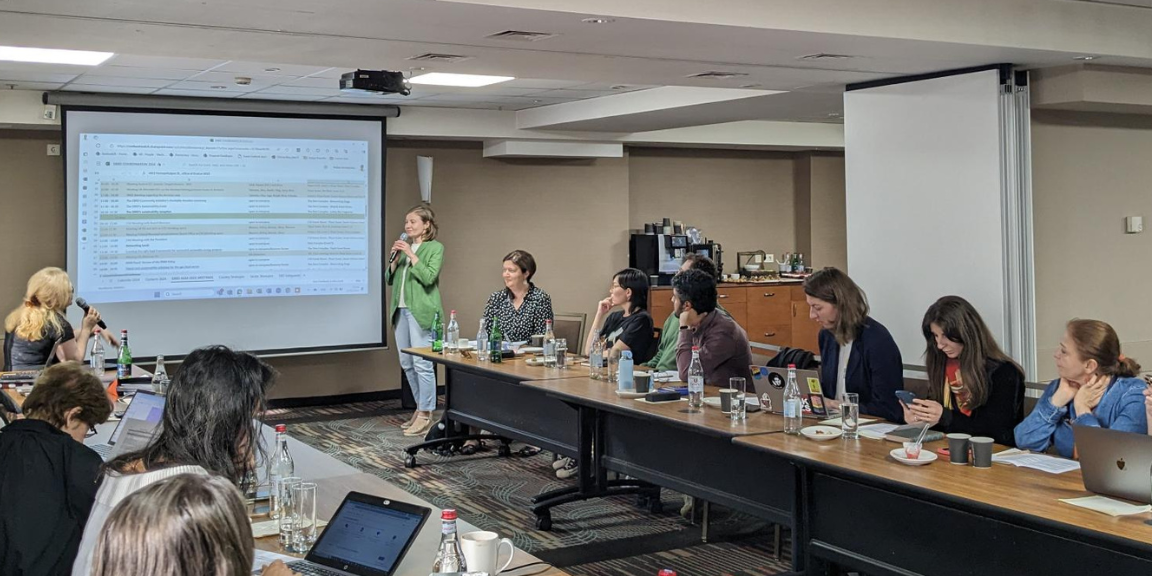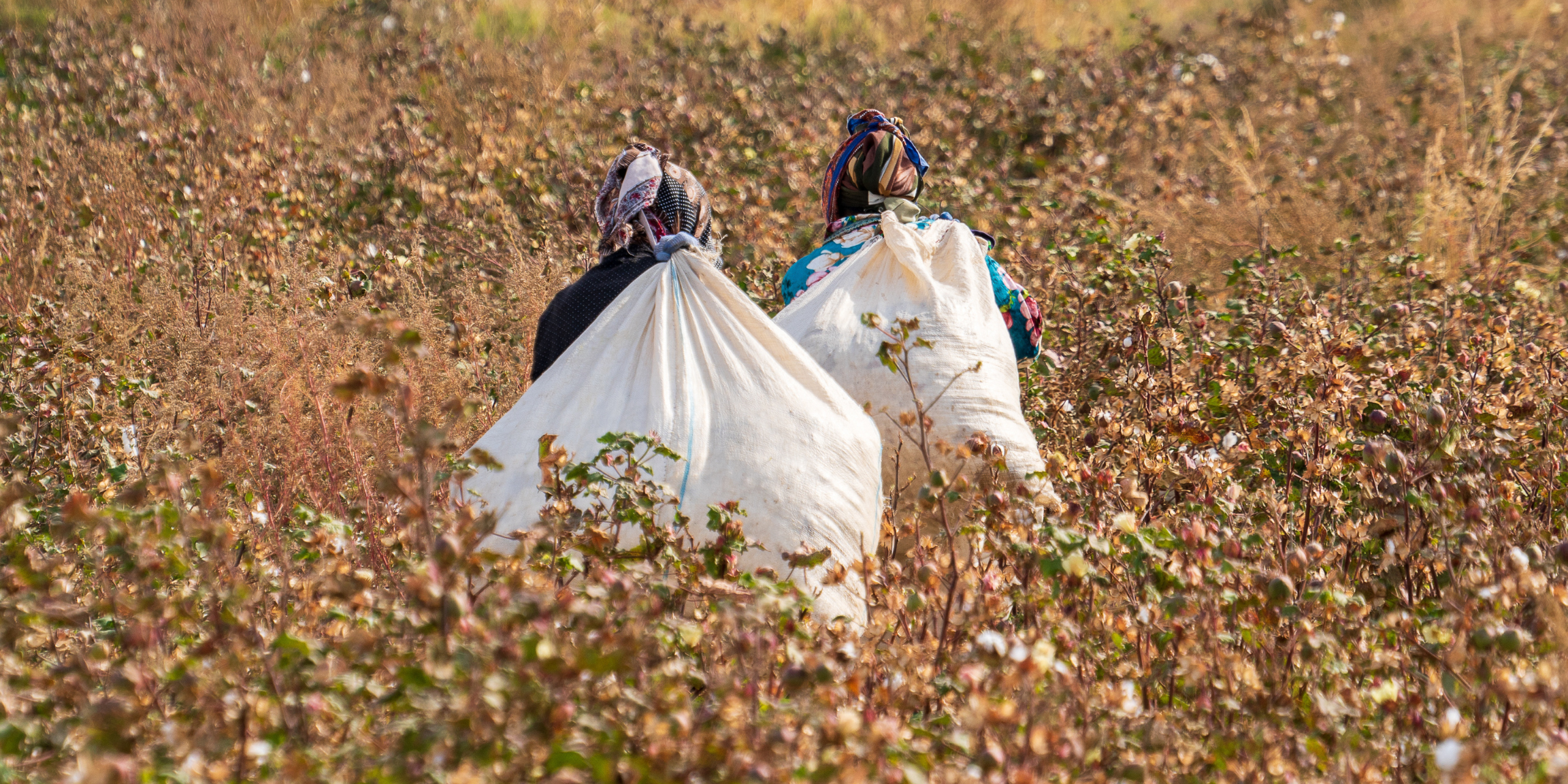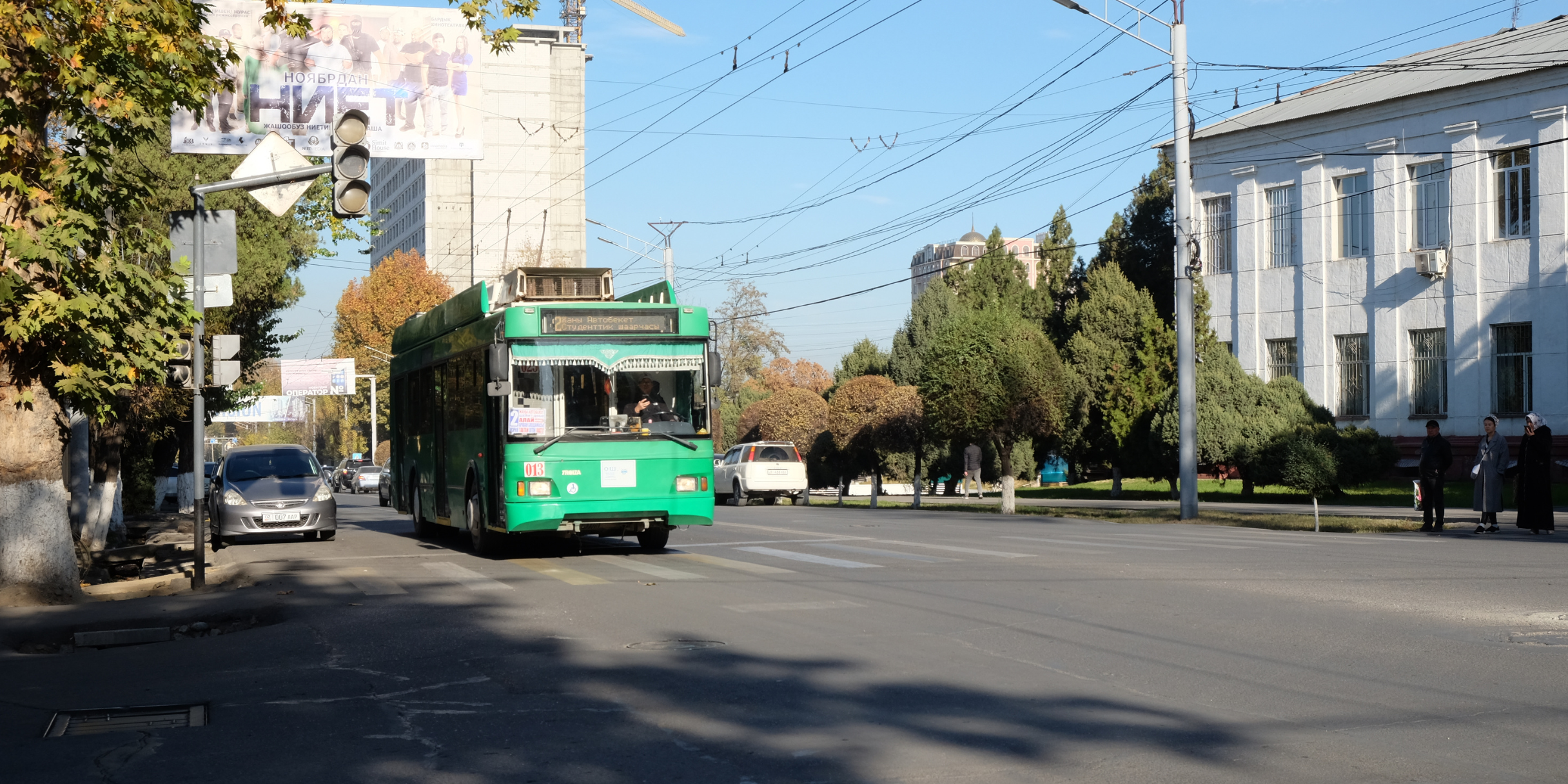Joint civil society letter to the EBRD President on Georgia’s draft law on Transparency of Foreign Influence
Publication | 27 May, 2024More than 30 international and national civil society organisations have joined the call to the President of the EBRD, Odile Renaud-Basso, to condemn the Foreign Agents Law, which is an attack on civil society and independent media and risks jeopardising their activities and the success of business operations in Georgia.
Read moreComments on the draft Environmental and Social Policy with a focus on human rights due diligence
Publication | 27 May, 2024The EBRD’s safeguards revisions show some progress, but the Bank needs to strengthen its own environmental and social due diligence, particularly in the area of human rights, to prevent human rights abuses through early risk identification and effective mitigation.
Read moreKey trends and shortcomings in community engagement on high-risk EBRD projects
Publication | 24 May, 2024The EBRD sets out requirements for stakeholder engagement as part of project risk and impact assessments. This study reviews the stakeholder engagement practices of EBRD clients in all 34 high-risk projects disclosed between 2020 and 2024.
Read moreCEE Bankwatch comments on the draft EBRD Access to Information Policy and Directive on Access to Information
Publication | 24 May, 2024CEE Bankwatch Network calls on the EBRD to commit to better disclosure of project-related environmental and social information. This will help enhance the Bank’s due diligence and ensure early identification of risks, effective impact mitigation, and compliance with the EBRD’s commitments.
Read moreCivil society joint statement on the EBRD’s draft safeguards
Publication | 24 May, 2024Despite some improvements, the latest drafts of the EBRD’s updated good governance policies fall short of ensuring that human rights are respected and protected, especially in countries with significant democratic deficits. In a joint statement, 60 civil society organisations urge the EBRD to enhance its human rights due diligence.
Read moreCivil society urges the EBRD to adopt responsible policies and reaffirm its commitment to promoting democracy
Press release | 14 May, 2024As the European Bank for Reconstruction and Development (EBRD) gathers for its 33rd Annual Meeting in Yerevan (1), civil society organisations have united to challenge the EBRD’s flawed policies. They highlight numerous cases where EBRD investments have had negative impacts on communities and the environment (2). CEE Bankwatch Network, a leading organisation in this effort, is also calling on the EBRD to take decisive action against the increasing repression of civil society in the countries where it operates.
Read moreStatement by Bankwatch’s Executive Director on the shrinking space for civil society in Georgia, Kyrgyzstan and other EBRD’s countries of operation
Blog entry | 13 May, 2024With the recent adoption of the “foreign representatives” law in Kyrgyzstan and a similar “foreign influence” bill awaiting final approval in the Georgian parliament, civic space continues to shrink in the EBRD’s countries of operations.
Read moreMore than money: New report reveals shortcomings in human rights policies of leading public development banks
Press release | 6 May, 2024As the EBRD gears up for its Annual Meeting on 14 May, the FIDH and Bankwatch release a report comparing the lending policies of four major public development banks whose loopholes are contributing to human rights violations.
Read moreMore than money: Development banks must strengthen human rights safeguards
Publication | 6 May, 2024Despite environmental and social safeguards in place, projects financed by public development banks all too often violate human rights.
Read moreBishkek’s electric trolleybuses under threat from ADB-funded transport overhaul
Publication | 2 May, 2024In an effort to address Bishkek’s pollution issue, the city plans to purchase 120 electric buses as well as a fleet of compressed natural gas buses. However, these may replace the city’s most environmentally friendly mode of transportation – the trolleybus.
Read more
